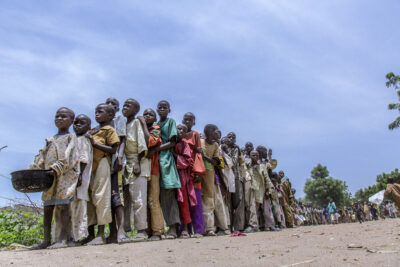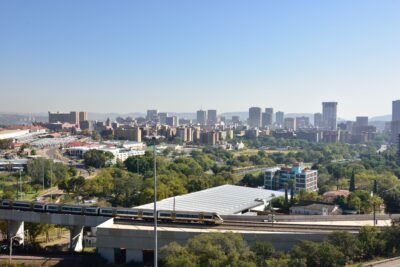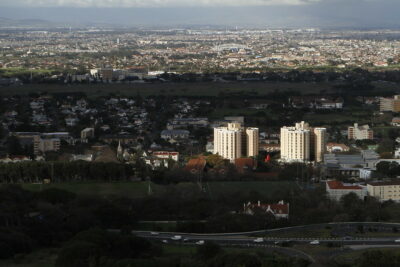The African Peacebuilding Network has awarded 17 Individual Research Fellowships to scholars who will conduct field-based research to enrich knowledge and practice in the field of peacebuilding in Africa.
The Next Generation Social Sciences in Africa program has awarded 41 fellowships across its 4 competitions, supporting students and early-career faculty with their doctoral dissertation and post-doctoral projects.
Introducing SSRC’s African Peacebuilding Network (APN) 2021 Fellows:
The African Peacebuilding Network (APN) of the Social Science Research Council (SSRC) is pleased to announce the 2021 recipients of its Individual Research Fellowship competition.
The program awards these fellowships to African researchers based in African universities, research institutes, and other policy-related and civil society institutions. Since 2013, the APN has awarded 188 research grants and fellowships.
The APN supports independent African research on conflict-affected countries and neighboring regions of the continent, as well as the integration of African knowledge into global policy communities. APN fellowships facilitate the production of high-quality African peacebuilding research and promote its visibility among policy practitioners and scholars around the world, including Africa, with the aim of influencing academic discourse and shaping policy.
APN Individual Research Fellowship
The Individual Research Fellowship (IRF) supports six months of field-based research, through which recipients produce research-based knowledge that is relevant to and has a significant impact on peacebuilding scholarship, policy, and practice on the continent.
The seventeen recipients of the 2021 Individual Research Fellowship (IRF) listed below are pursuing a diverse range of topics related to conflict and peacebuilding in Africa, such as the African Peace and Security Architecture (APSA), conflicts between farmers and nomadic herders, conflict resolution and transformation, gender, justice and peace, political violence, peacebuilding strategies, citizenship rights, and countering violent extremism. The 2021 Individual Research Fellowship cohort features eighteen individuals from Ghana, South Africa, Ethiopia, Kenya, Zimbabwe, Mozambique, Kenya, Uganda, Nigeria, Eritrea, Tanzania, and Mali.
Here is the list of the African Peacebuilding Network 2021 Individual Research Fellowship Awardees:
- Ernest Bagson,“Exploring Motivations for Youth Group Membership and the Rebounding Effects on Violence and Peacebuilding in Urban Ghana,” Simon Diedong Dombo University of Business and Integrated Development Studies (SDD-UBIDS), Wa, Ghana.
- Anusa Daimon, “The African Union/World Bank’s Malawi-Mozambique’s Boundary Retracing Exercise and the Resultant Borderland Conflict in Makanjila District: 2008 to the present,” University of the Free State, Bloemfontein, South Africa.
- Yonas Ashine Demisse, “Players, Playing Field, and the Game in a Transition Moment: Electoral and Party Politics as Critical Sites of Transition in Ethiopia,” Addis Ababa University, Ethiopia.
- John Mwangi Githigaro,“Reintegrating Returning Foreign Fighters: Assessment of Peacebuilding/Rehabilitation Interventions in Kenya’s Mombasa County,” Paul’s University, Limuru, Kenya.
- Simbarashe Gakurume, “When the Youth Become Peacebuilders in Zimbabwe,” Sol Plaatje University, Kimberly, South Africa.
- Pauline Kazembe, “Women Singing, Acting and Writing Peace: (En)gendering Creative Arts of Peacebuilding and Integration in Contemporary Zimbabwe,” University of Zimbabwe, Harare, Zimbabwe.
- Constâncio Augusto Machanguana, “Innovative Approaches to Community Involvement in Resettlement Schemes to Prevent Potential Conflicts: Case Study in Chibuto District, Mozambique,” Eduardo Mondlane University, Maputo, Mozambique.
- Jesica Kinya Mwithia, “The Discourse of Othering: An Analysis of Politics of Inclusivity and Exclusivity in Kenya,” Daystar University, Nairobi, Kenya.
- Edgar Fred Nabutanyi, “Ugandan Gay Fiction and Peacebuilding: Fictional Depictions as Antidote to Homophobia,” Makerere University, Kampala, Uganda.
- Eve Nabulya, “Storytelling as a Tool for Rebuilding Communities Torn by the 2021 Election-Related Clashes in Central Uganda,” Makerere University, Kampala, Uganda.
- Doreen Nchang, “In Search of Peace: Emerging Narratives and Linguistic Options for Managing Anglophone-Francophone Crises in Cameroon,” University of Cape Town, Cape Town, South Africa,
- Ngozika Anthonia Obi-Ani, “Uneasy Peace Since the Civil War in Igboland: A Bottom-Up Approach Perspective,” University of Nigeria, Nsukka, Nigeria.
- Biyan Ghebreyesus Okubagherghis, “Informal Cross-Border Trade: Rebuilding Relationships,” College of Business and Social Sciences, Adi Keyh, Eritrea.
- Chuka Ononye, “Stance Acts as Pull Strategies for Radicalization: A Corpus-based Study of the Propaganda Used by the Islamic Movement of Nigeria and Indigenous People of Biafra,” University of Nigeria, Nsukka, Nigeria.
- Kalista Higini Peter, “The Role of Non-State Actors in Addressing Witchcraft-Related Conflict and Violence: A Case of Kwimba District, Mwanza, Tanzania,” University of Dodoma, Dodoma, Tanzania.
- Hauwa Mohammed Sani, “Ethnographic Study of Language as a Tool of Conflict Mediation in Kaduna State, Nigeria,” Ahmadu Bello University, Zaria, Nigeria.
- Mahamadou Bassirou Tangara, “Bringing Back the Community’s Informal Economy into Peace and Conflict Studies” University of Social Sciences and Management of Bamako, Bamako, Mali.
CONGRATULATIONS TO OUR NEWEST FELLOWS!
For more information on APN fellowships, please write to: apn@ssrc.org or visit our pages on Individual Research Fellowships and Working Group Research Fellowships.
Introducing SSRC’s Next Generation Social Sciences in Africa’s 2021-2022 Fellows
The Social Science Research Council’s Next Generation Social Sciences in Africa program is pleased to announce the forty-one fellows receiving the Post-Doctoral Writing Fellowship, the Doctoral Dissertation Completion Fellowship, the Doctoral Dissertation Research Fellowship, and the Doctoral Dissertation Proposal Fellowship.
The Next Gen program supports tertiary education in Africa by awarding a sequence of 4 fellowship opportunities for promising PhD students to do research and make steady progress toward completing their doctoral degrees. The dissertation-based writing fellowship is exclusive to Next Gen alumni.
The 41 fellows listed below are working on a range of topics relating to peace, security, development, politics and governance, gender and youth, land and climate change, media and cultural studies, and mental health.
Here is the complete list of Next Generation Social Science in Africa 2021-2022 fellows:
Post-Doctoral Writing Fellowship
The post-doctoral writing fellowship supports up to six months of work on an article or book manuscript through a stipend of up to US$3,000. It will enable the recipient to take time off from teaching and administrative duties to focus exclusively on finalizing an article for a peer-reviewed journal or completing a book manuscript based on a Next Gen-supported doctoral dissertation that advances research on peace, security, and development. This fellowship is exclusively available for Next Gen alumni.
This year’s Post-Doctoral Writing Fellow is:
- Thobekile Nyoni Zikhali, “The Role of Third Parties in the Incomati River Basin,” University of Witwatersrand, South Africa.
Doctoral Dissertation Completion Fellowship
The doctoral dissertation completion fellowship supports a one-year leave from teaching and administrative responsibilities through a stipend up to US$10,000 to permit the completion of a dissertation that advances research on peace, security, and development topics.
This year’s Doctoral Dissertation Completion Fellows are as follows:
- Chekero Tamuka, “Mobility, Space and Urbanism: The Study of Practices and Relationships Among Migrants from African Countries in Cape Town, South Africa,” University of Cape Town, South Africa.
- Kauma Bryan, “A Social, Economic and Environmental History of Small Grains In Zimbabwe, C1890-2013,” University of Stellenbosch, South Africa.
- Longbaam-Alli Gloria, “Historicizing Hybrid Conflict Management: State and Non- State Dynamics in Nigeria’s Middle Belt 1957- 2018,” Makerere University, Uganda
- Mugambi Munene, “Understanding the Impacts of Environmental Change and Climate Uncertainty on The Livelihood of Maasai Pastoralists of Ildamat-Oloyiankalani, Kajiado County, Kenya,” University of Cape Town, South Africa.
- Ndlovu Thatshisiwe, “A Punctuated Life: An Ethnographic Study of the Practice of Ukuthwalwa in South Africa,” University of the Witwatersand, South Africa.
- Ajala Fisayo, “Women and Insurgency: Coping and Social Support Strategies of War Widows of Nigerian Army Combatants in the War Against Boko Haram,” University of Stellenbosch, South Africa.
- Ibrahim Hafsa, “Making of the Jihadi Brides: Muslim Women Involvement in Radicalization and Terror Related Activities in Mandera County, Kenya,” Egerton University.
- Nqambaza Palesa, “Mapping The Sex/Gender Trajectories of Amampondo,” University of the Witwatersand, South Africa.
- Hasunga Flora, “Contribution of Customary Land Titles on Rural Women’s Economic Empowerment in Tanzania: A Case of Mbozi District, Songwe Region,” The Open University of Tanzania, Tanzania.
Doctoral Dissertation Research Fellowship
The doctoral dissertation research fellowship supports 6-12 months of dissertation research costs of up to US$15,000 on a topic related to peace, security, and development.
This year’s Doctoral Dissertation Research Fellows are as follows:
- Muradzikwa Tracey, “State Law and Women in Chieftaincy Crisis. The Case of Nswazi Village, Zimbabwe,” University of the Witwatersand, South Africa.
- Maseti Thandokazi, “Discourses that Shape Black Women’s Academic Development in South Africa,” University of Johannesburg, South Africa.
- Rwabyoma Asasira Simon, “Men’s Involvement in Achieving Gender Equality: A Study of Masculinities-Focused Interventions in Post-Genocide Rwanda,” The Open University of Tanzania, Tanzania.
- Machacha Mandipa, “A Rights-Based Framework for Zimbabwean Migrant Women Who Work in Botswana’s Informal Economy,” University of Pretoria, South Africa.
- Salomao Lina, “Gender Relations and School Dropout in Mozambique: Trajectories of Girls in Maputo Province and Maputo City,” Moi University, Kenya.
- Kagoyire Marie Grace, “Construction of Genocide Memories: Narratives of Second Generation Rwandans,” University of Stellenbosch, South Africa.
- Anitah Atwijuka, “Culture and Decentralized Power: Discerning Nationalism in Contemporary Uganda,” Makerere University, Uganda.
- Mokou Goitsione, “Colonial Discursive Practices and the Discipline/-Ing of the Native Subject in the Colonial University,” University of Cape Town, South Africa.
- Chatikobo Tatenda, “Digital Colonialism in the Global South: Experiences from a Marginalized Community in South Africa,” Rhodes University, South Africa.
- Ziyambi Gabriel, “Commissioned Women Soldiers and Politics in Zimbabwe,” State University of Western Cape, South Africa.
- Ajiko Roselyne Kahyana, “The Political Economy of Neo-Extractivism in Uganda,” Makerere University, Uganda.
- Yeni Sithandiwe, “Land, Livelihoods and Belonging: a Gender and Generational Perspective of Agrarian Change in the Context of Dominant Corporate Control of South Africa’s Agro-food System,” University of Western Cape, South Africa.
- Amakanji Graham, “Calibrating Homegrown Extremism Over Intractable Communal Land Use Conflicts in Mt Elgon Constituency of Bungoma County, Kenya,” Masinde Muliro University of Science and Technology, Kenya.
- Effevottu Efetobor Stephanie, “The Catholic Church and Peacebuilding in Post-Civil War Nigeria, 1970-2015,” University of Ibadan, Nigeria.
- Musamba William, “Sub-ethnic Identities and Political Conflict: The Case of Busoga, 1895 to 1967,” Makerere University, Uganda.
- Katumusiime Jacob, “Beyond Religio-Cultural Violence: A Historico-Political Re-Contextualization of the Movement for the Restoration of the Ten Commandments of God,” Makerere University, Uganda.
- Mbezi Rose, “Women’s Access to Land in the Context of Multiple Users and Systems in the Contemporary Rural Tanzania. A Case Study of Rufiji District Coastal Region in Tanzania,” University of Dar es Salaam, Tanzania.
- Muthegethi David, “Rethinking Materiality on Social Identities: Archaeological Perspective of Thimlich Ohinga and Gedi From 1000 Ce-1900 Ce,” Kenyatta University, Kenya.
Doctoral Dissertation Proposal Fellowship
Doctoral dissertation proposal fellowships support PhD students working on developing a doctoral dissertation research proposal as well as students who recently completed a master’s degree and seek to enroll in a PhD program. The fellowships support short-term research costs of up to US$3,000 to develop a doctoral dissertation proposal.
This year’s Doctoral Dissertation Proposal Fellows are as follows:
- Yikwabs Yikwab, “Putting Victims First: Unpacking the Dynamics of Victimization Experiences in the Farmer-Herder Conflict of North Central Nigeria,” Federal University Lokoja, Nigeria.
- Kassaw Fentie Alene, “Trans-Border Security Threats in The Horn of Africa: Actors, Their Modi Operandi and Implications for Human Security in Ethiopia,” Makerere University, Uganda.
- Amoah Douglas, “Community Policing in Ghana’s Fourth Republic: An Assessment,” University of Ghana, Ghana.
- Olorunlambe Wasiu, “Gender-Based Violence Against Women and Children During United Nations Peace Keeping Operations in Sub-Saharan Africa (Central Africa Republic and South Sudan),” Makerere University, Uganda.
- Thomas Angelique, “Tentative Title: From Risk to Resilience: Reimagining Sexual and Reproductive Health in an Exploratory Study with Young Women Living with HIV and Their Partners in the Western Cape, South Africa,” University of Cape Town, South Africa.
- Ndirangu Grace, “The Effects of Wartime Sexual Violence on the Reproductive Health of Displaced Women from South Sudan,” University of the Witwatersrand, South Africa.
- Ndhlovu Nontando, “Colonial Gender Structures as Influencing the Political Leadership Landscape in Zimbabwe: An intersectional Feminist Critique,” University of Pretoria, South Africa.
- Maina Grace, “(Dis) Continuities in Agikuyu Women Traditional Justice Systems, 1895-2013,” Makerere University, Uganda.
- Zharare Chiedza Nyengeterai, “Cultural Heritage and Changing Societies After Natural Disasters in Eastern Zimbabwe; A Case of Chimanimani and Chipinge After Cyclone Idai,” University of Cape Town, South Africa.
- Muhamed Lunyago, “Kyapa Mungalo” and the Land Question in Buganda: Understanding the Dynamics of Formalization of Customary Tenure Holdings and Socio-Economic Transformation,” Makerere University, Uganda.
- Oswald Martin Fikiri, “Who Votes in Tanzania and Why? An Empirical Examination of Individual and Contextual Predictors of Electoral Participation,” The Mwalimu Nyerere Memorial Academy, South Africa.
- Ncube Vuyolwethu, “Uncovering the Unseen Scourge: How Does Violence against Women Occur In Situ?” University of the Witwatersrand, South Africa.
- Kachope Patrick, “Civil Society-State Relations in Small Arms Governance: The Case of Micro-Disarmament in Karamoja, Uganda,” Nkumba University, Uganda.
Warm congratulations to this year’s Next Generation Social Sciences in Africa fellows. Next Gen looks forward to working with you and seeing the results of your promising research.
If you are interested in applying for a fellowship award from Next Generation Social Sciences in Africa, the call for applications for the 2022-2023 grant cycle is live. Applications will be accepted until February 1, 2022.












